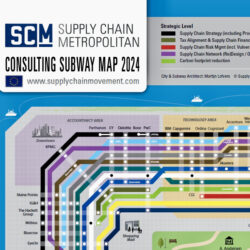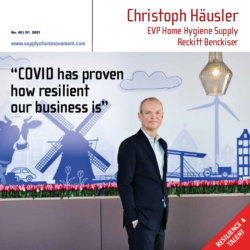McKinsey exposed
Late last year, a remarkable book was published about the world of consulting. Generally speaking, consultants are expected to remain neutral and they learn how to psychologically arm themselves against clients who want to misuse their advice. When McKinsey Comes to Town exposes the disastrous consequences that can result from consultants failing to do this and choosing to serve senior executives’ short-term interests instead.
By Harm Beerens
Recklessly cutting back on necessary maintenance at a Disney theme park to boost short-term profits, resulting in fatal accidents. Firing experienced staff and raising the pay of top executives, fuelling social inequality. Advising authoritarian regimes in Russia, China and Saudi Arabia on how to increase their power, without raising moral objections. And developing a marketing campaign for highly addictive painkillers, boosting sales for the pharmaceutical company but resulting in thousands of overdose-related deaths among users. These are just some of the scandals presented by authors Walt Bogdanich and Michael Forsythe in their book When McKinsey Comes to Town.
The authors are clearly out to knock the mighty McKinsey off its pedestal, but this sometimes feels one-sided. McKinsey is a huge consulting firm that throughout its history has worked with virtually all of the world’s major corporations and government agencies. As you read the book, you can’t help but think that many times the firm will also have done things right. With over 30,000 employees, offices in 130 cities and operations in 65 countries, the US consulting giant is one of the market leaders in strategic management consulting. Current and former employees form a tight-knit and powerful network, with many alumni going on to hold high-ranking positions in society. Can we really hold them all accountable for all the firm’s past mistakes around the world?
Enriching a few
Nevertheless, the two authors do have a point when they criticize McKinsey’s advice for being strongly focused on the immediate financial interests of its clients, i.e. the people hiring them. And the interests of those senior company executives and national government leaders can differ from the rest of the organization. For example, McKinsey’s suggestions for rigorous job cuts – or ‘downsizing’, as consultants call it – regularly result in top managers seeing the value of their stock options increase, to the disadvantage of workers. “Enriching a few at the expense of many,” Bogdanich and Forsythe call this. This is definitely not what one would expect from a prestigious consulting firm like McKinsey, especially in this day and age, when the gap between rich and poor is becoming increasingly problematic and companies need to make the transition toward long-term sustainability.
So is When McKinsey Comes to Town any good? Speaking from a journalistic point of view, it most certainly is. In fact, it is admirable how thoroughly the authors back up their allegations with research and facts; hundreds of official sources are cited for each chapter/scandal. The journalists also managed to get their hands on all sorts of ‘secret’ documents that McKinsey itself would have preferred to keep under wraps, such as PowerPoint presentations showing questionable recommendations listed as bullet points. This is journalistic excellence, especially considering the amount of resistance the authors undoubtedly faced. A proud and powerful institution like McKinsey will have been very keen to prevent the publication of this book, so the authors deserve high praise for remaining undeterred.
Moral compass
Is the book also interesting for supply chain directors? Yes, it is. Not necessarily because it contains lots of concrete tips, but because of the underlying message: never blindly trust the advice of an external firm, even if it sounds so appealing. As a leader, it’s important to develop your own moral compass. Consulting firms claim to be neutral but, as the book clearly shows, they are still commercial companies hoping to make (a lot of) money. Likewise, consultants are only human and have their weaknesses, including the tendency to sometimes tell clients what they want to hear. Terrible things can happen when clients stop thinking for themselves and hide behind external advice. You have been warned!
![]()
When McKinsey Comes to Town (2022), Walt Bogdanich & Michael Forsythe, Penguin Random House, $32.50










